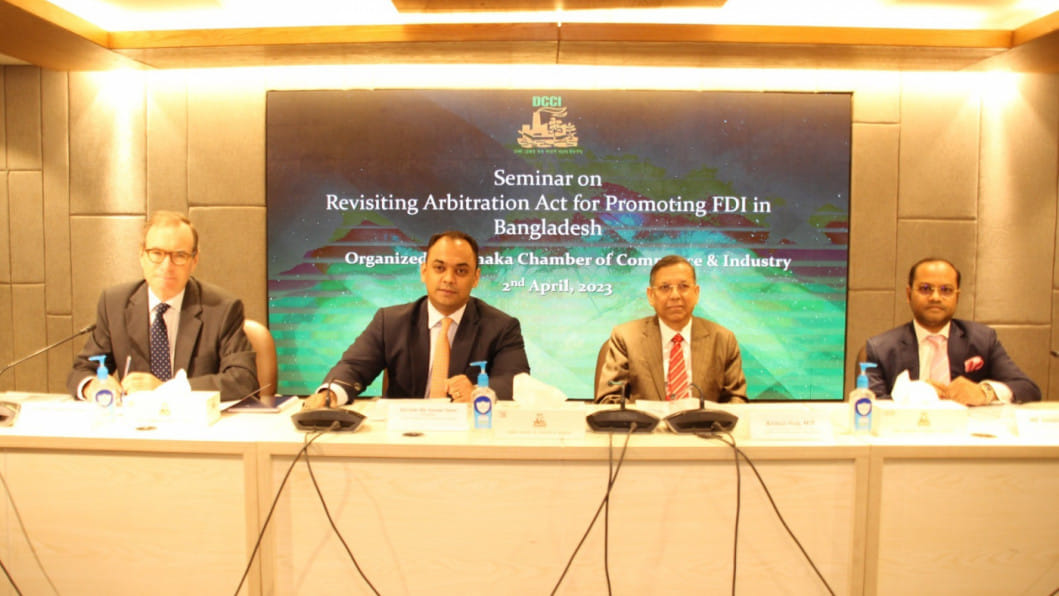Sound commercial laws vital to attracting FDIs

Bangladesh needs to put in place sound and enforceable commercial laws and affordable commercial dispute resolution systems and ensure adequate protection to investments with a view to removing barriers hindering businesses and creating investment opportunities, said speakers today.
The experience and evidence show that despite overwhelming challenges, it is possible to reform the commercial laws and it is possible to deliver specific improvements, which can make it easier to do businesses, said Robert Chatterton Dickson, the British high commissioner in Bangladesh.
He suggested the reforms so that the graduation of Bangladesh to a developing country from the grouping of the least-developed countries does not face any major challenges.
The envoy was speaking at a seminar on "Revisiting the Arbitration Act for Promoting FDI in Bangladesh" organised by the Dhaka Chamber of Commerce and Industry (DCCI) at its office in the capital.
Dickson said the discontinued World Bank's ease of doing business ranked Bangladesh second from the bottom among 190 countries when it comes to enforcing contracts.
"In Bangladesh, we worked for many years in justice sector reforms and other areas. But it is fair to say the impact of the work has limitations in terms of the commercial justice system. The justice system is overwhelmed with the backlog of a huge number of court cases."
Dickson said he could see weaknesses in the commercial legal environment, including irrelevant laws and regulations, hindering business and investment opportunities.
In the post-LDC period, Bangladesh will compete with other developing countries, and confidence is the key to attracting foreign direct investments, he added.
"Sound and enforceable commercial laws and affordable commercial dispute resolution systems are vital to attracting FDIs."
He added that foreign investors require protection for their investments and protection against the pretty risks of expropriation, protection through dispute settlement mechanisms, and protection of their intellectual property.
A stable business environment comprising an efficient dispute resolution system is one of the prerequisites for attracting FDI, said Md Sameer Sattar, president of the DCCI.
He said in order to further promote the ongoing growth and success of the business climate, it is essential that Bangladesh establishes a legal framework that enables swift and efficient contract enforcement, particularly in the context of cross-border commercial disputes.
"Therefore, it is essential to reform the Arbitration Act as the first step towards addressing such challenges existing in our legal atmosphere."

 For all latest news, follow The Daily Star's Google News channel.
For all latest news, follow The Daily Star's Google News channel. 








Comments